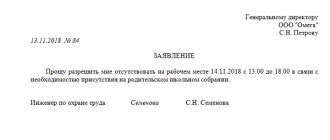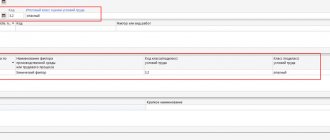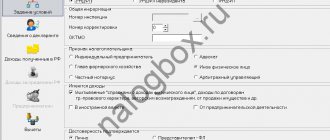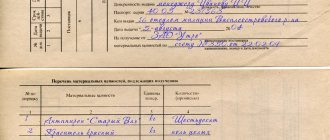In modern market realities, business development largely depends on the people who work in the company. Today, enterprise managers want to see in their employees not only highly qualified specialists, but also those who are ready to “live” this business.
Dear readers! The article talks about typical ways to resolve legal issues, but each case is individual. If you want to find out how to solve your particular problem , contact a consultant:
+7 (499) 110-56-12 (Moscow)
+7 (812) 317-50-97 (Saint Petersburg)
8 (800) 222-69-48 (Regions)
APPLICATIONS AND CALLS ARE ACCEPTED 24/7 and 7 days a week.
It's fast and FREE !
That is why employers are increasingly approving employees of irregular working hours. This concept is provided for in the Labor Code of the Russian Federation.
How is an irregular working day defined in the Labor Code of the Russian Federation?
An irregular working day according to the Labor Code of the Russian Federation (hereinafter referred to as NSD) means a work regime in which an employee can be involved in work beyond the standard working hours established for all employees (Article 101 of the Labor Code of the Russian Federation).
The main features of this work mode are as follows:
- The NSD must be established for a specific employee, and the possibility of its establishment must be pre-established in the internal regulations of the enterprise;
- when establishing the NSD, this must be stipulated in the employment contracts for each employee involved;
- involvement in work beyond normal working hours must be episodic in nature and must be determined by production needs;
- the types of work performed during extra time should only be the same as those performed as usual and provided for by the employment contract, job description and other similar documents;
- Working additional time for employees in the NSD mode on weekdays is not considered overtime work;
- the establishment of NSD has restrictions provided for by law in relation to persons who are provided with additional social and state support: minors;
- pregnant women;
- disabled people;
- single parents of small children.
Approval procedure - order
After the provision is signed, it must be followed by an order to put the document into effect, issued by the manager. A sample order establishing an irregular working day should include the following points:
- legal basis for the formation of the document. The standard option is a link to Articles 101 and 119 of the Labor Code of the Russian Federation;
- details of the document being approved;
- if the list of positions was not indicated in the main document, then this can be done here - in the order;
- information about compensation.
https://youtu.be/AcqZSk_7yNY
In addition, if necessary, the parties may mention other important information. When preparing a document, the main requirement is its compliance with current laws.
How is a non-standard operating mode established?
Establishing NSD for certain categories of employees includes several mandatory steps:
- A list of positions at the enterprise for which NSD is expected is developed and approved. There is no specific list in the legislation, so employers need to do this themselves, based on the specifics of the activity and the functionality of the positions. According to statistics, the following positions and professions top the list:
- senior management representatives;
- employees whose work schedule is related to the work of management: assistants, secretaries, clerks, personal drivers, translators;
- heads of accounting and financial services;
- heads of departments with atypical work schedules (for example, warehouse or equipment adjusters department);
- technicians and adjusters;
- technologists (especially in continuous cycle industries);
- logisticians and dispatchers;
- workers responsible for safety and security.
- A draft internal regulatory act is being drawn up to establish the NSD for the categories of workers included in the list.
- If the enterprise has a representative body of workers, the draft local act must be submitted to it for approval. The procedure is provided for in Art. 8 and 372 of the Labor Code of the Russian Federation.
For more information on approvals with the body representing the interests of employees, see “Art. 372 of the Labor Code of the Russian Federation: questions and answers.”
- The draft normative act agreed upon with the stakeholders is approved and becomes the internal regulations of the organization. All employees must be familiar with it against signature.
- For already working employees, when establishing NSD, additional agreements are made to their employment contracts. For newly hired employees, the established NSD is immediately included in the contract, job description and admission order. The new regulations are also reflected in the collective agreement of the enterprise with its employees.
What are the nuances of applying such a labor regime in practice?
The NSD regime contains a number of obvious advantages for the employer:
- Working beyond the norm under NWP is not considered overtime. This means, among other things, that:
- There is no need to document every employee’s delay at work as required by Art. 99 Labor Code, - with a separate order for each case, written consent of the employee, etc.;
- there is no need to pay for processing at increased rates according to Art. 152 TK.
- NSD makes it possible to simplify the recording of working time for the relevant categories of employees, since:
- there is no need to follow the processing limits allowed under Art. 99 TK;
- compensation for non-working hours does not depend on the number of overtime hours, so there is no need to keep separate special records for them to calculate compensation (the number of hours actually worked in the usual manner is entered into the timesheet).
At the same time, NSD provides for a number of mandatory compensation provisions for employees on the part of the employer:
- Establishing monetary compensation (for example, a salary increase) for NSD. It is worth noting here that such a bonus must be paid in any case, regardless of whether the employee had actual overtime under the NSD in the billing period (month) or not.
- Establishment of additional days of annual paid leave. According to Art. 119 of the Labor Code there must be at least 3 of them, but by collective agreement there may be more. Here the rule is the same as when calculating wages: additional leave is granted if, according to the terms of the contract, an NSD employee has, even if in fact he worked according to the general regular schedule.
- The NSD regime does not apply to work on weekends and holidays. According to the norms of Art. 111 and 113 of the Labor Code, weekends and holidays are established for all workers, therefore the rules for attracting work and payment for it at this time are regulated separately.
Read more about labor holidays and weekends here: “Art. 113 Labor Code of the Russian Federation: questions and answers.”
IMPORTANT! If the establishment of NWP for an employee is not properly formalized and/or the compensatory measures proposed by the Labor Code are not carried out in relation to him, then any actual overtime must be documented and compensated as overtime work .
Find out, “How is overtime paid under the Labor Code of the Russian Federation?”
Document structure
A standard sample of a regulation on irregular working hours should contain the following points:
- name of the enterprise;
- the phrase “I approve” in the upper left corner; official and his initials;
- date of document generation;
- under the title heading of the same name, the place of formation of the document is indicated: city and date;
- general provisions are written out, which indicate the essence of the document, the circumstances of acquiring legal force and the procedure for making changes;
- The next section outlines the details of establishing a non-standard number of working hours per day. Here you should list officials who may be involved in additional work in the future;
- the procedure for establishing working hours above the norm for new hired employees;
- method of keeping records of working hours and control over them, as well as persons responsible for these matters;
- It is mandatory to mention the requirements that, according to the Labor Code of the Russian Federation, the performance of official duties should not fall on weekends and holidays;
- type of compensation;
- an explanation of whether monetary compensation is provided or not;
- duration of additional leave for each specialist in calendar days;
- a clause stating that additional leave cannot be transferred to the next year and it is not necessary that it be added to the main leave. The employee can take the second part of the leave at any time of the year by submitting an appropriate application;
- The last point is the “Final Provisions” section, which indicates the validity period of the document.
Go to Explanatory note to the balance sheet, sample
Before signing, each of the mentioned officials must be familiar with the document. They must confirm this point with a signature. In total, at the end of the document there must be signatures of all employees with the actual date.
The document allows changes to be made at any time by agreement of the participants. This is done in two ways: directly making changes by editing the document or creating an additional application.
How and by how many hours can a standard working day be extended?
In this aspect, almost everything remains at the discretion of the employer. There are no special regulatory standards established by labor legislation, therefore:
- You can be involved in additional work for NSD both before and after the official working day.
- An instruction to stay late (or arrive early) can be issued in any form, including verbally, and the employee’s separate consent is not required.
- The time spent on overtime during NSD is not limited in any way; the employee works as many hours as required to complete the assigned task. The only condition: processing should not be done every day for a long time.
Differences from overtime
Overtime and long hours have several common characteristics. During this time, workers work beyond the established workday. But in matters of payment, the concepts differ from each other.
Overtime work is provided with the consent of the citizen when:
- the need to complete the started activity in order to prevent damage to property and a threat to the life and health of people;
- carrying out repairs of equipment, the breakdown of which may lead to interruption of work;
- absence of another employee during continuous work.
It is not necessary to obtain the employee's consent in several cases.
These include:
- performing work to prevent a catastrophe, accident, or natural disaster;
- implementation of actions to eliminate breakdowns of the water supply, heating, sewerage, gas supply systems;
- carrying out work that is required in a state of emergency.
Overtime work cannot last more than four hours on two consecutive days. In total it amounts to 120 hours per year. In this case, the first two hours of work are paid at one and a half times the rate. The remaining time requires a double payment.
If the employee wishes, he can replace the increased pay with additional rest. Time off is granted for a period not exceeding the overtime worked.
https://youtu.be/QGhGN9_wudQ
How to record the transition to an irregular day in an employment contract - sample
If the regulation on NSD is already in force at the enterprise, information about this is entered in advance into draft employment contracts with new employees who will work on NSD terms (according to the norms of Article 57 of the Labor Code of the Russian Federation).
Read more about the content of employment contracts here: “Art. 57 of the Labor Code of the Russian Federation: questions and answers.”
As an example, consider a situation where NSD is an innovation for employees with whom there are existing contracts.
Example
Transit-logistic LLC is engaged in the storage and sorting of cargo for air transportation. In connection with the increase in activity volumes and the acquisition of new warehouse space, the LLC is introducing a new work schedule for warehouse employees and irregular working hours for department heads. In this regard, the LLC makes changes to the employment contract with the head of the sorting department, A. A. Pryakhin.
Please note: 2 clauses of the contract have been changed. Directly related to work hours and establishing standard work schedules. The work schedule clause is a direct adherence to the norms of Art. 101 of the Labor Code, which establishes that non-working hours are periodic involvement in work beyond the established working hours. Therefore, in order to prescribe the NSD in the contract, it is necessary to determine the established “regular” working hours.
It should also be noted that the agreement must indicate the date from which the changes become effective. Changes cannot take effect retroactively. All employee overtime that occurred before the appointment of the NSD must be accounted for as overtime and paid accordingly.









